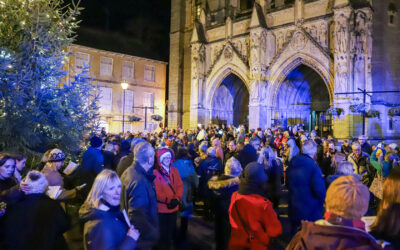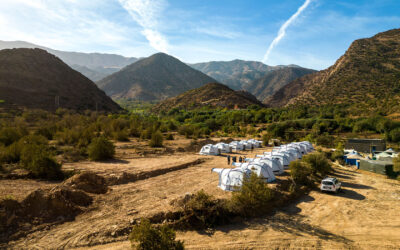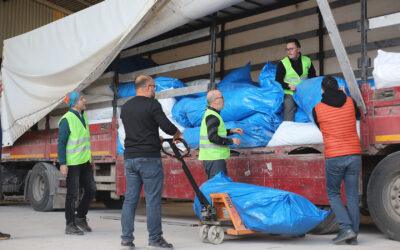Rotary’s project partner in disaster relief, ShelterBox continues to work with partners in places like Syria, Cameroon and Ethiopia to deliver emergency shelter and essential items like water filters, blankets and cooking sets. Their teams are finding new ways to tackle the challenges and adapt to changing circumstances.
Sanj Srikanthan, Chief Executive of ShelterBox, explains the vital role emergency shelter plays in curbing the virus:
‘When you lose your home after a disaster or in a conflict, your ability to stay safe and healthy is already compromised. Now families in places like Syria – who are already struggling to get the basics – face a crisis within a crisis when coronavirus hits. It will spread like wildfire from family to family, camp to camp.
‘Coronavirus is shining a spotlight on the fundamental importance of home to our health and wellbeing, and our ability to deal with the serious problems that life can bring. Right now, we’re all looking at ways to help our close family and community, which is completely understandable. It’s a worrying time for everyone.
Coronavirus is shining a spotlight on the fundamental importance of home to our health and wellbeing, and our ability to deal with the serious problems that life can bring.”
‘But ShelterBox is urging you to support families further afield too, if you can. Imagine being seriously ill with no roof over your head. There’s little hope of “social distancing” when there are no blankets to keep your children warm. You can’t wash your hands frequently when there is no clean water. You can’t make your children meals when there is nowhere to cook and nothing to cook it in.
‘Our tents and shelter kits can help people to keep distance from each other. Emergency shelter is vital for moving people from overcrowded camps and collective centres to a more private space.’
ShelterBox partners ReliefAid, who are delivering aid in Idlib, have spoken of their concerns and the difference this aid will make. A humanitarian worker there said:
‘I am very worried about the virus. If many countries cannot deal with the virus, here in Northern Syria the situation will be disastrous.
‘Families with shelter are more able to stay well because they are warm, dry and able to sleep. Using family kits, like water containers and cooking pots, they don’t need to share materials, reducing the risk of infection.’
To find out more or to donate to ShelterBox, please visit the Shelterbox website.
Is your club now meeting online, staying connected and keen to support vulnerable families around the world? ShelterBox have created a range of resources to support you, as global people of action. Find them here.










